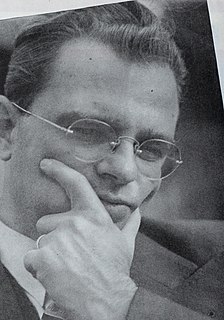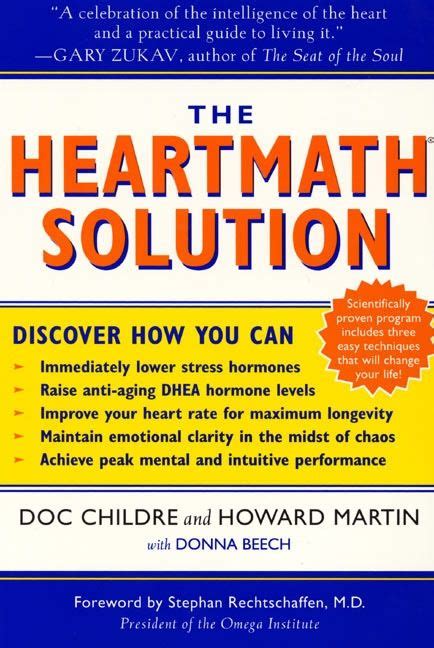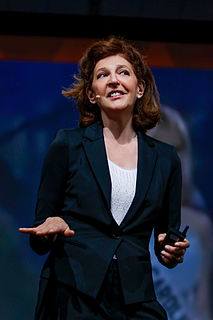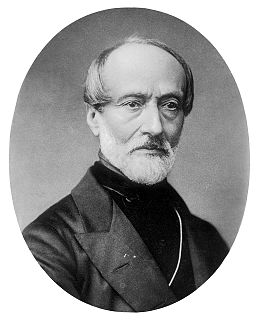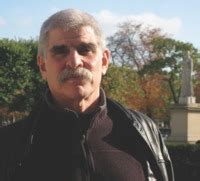A Quote by Chris Hedges
To emotionally accept impending disaster, to attain the gut-level understanding that the power elite will not respond rationally to the devastation of the ecosystem, is as difficult to accept as our own mortality. The most daunting existential struggle of our time is to ingest this awful truth-intellect ually and emotionally-and continue to resist the forces that are destroying us.
Related Quotes
The truth about our childhood is stored up in our body, and although we can repress it, we can never alter it. Our intellect can be deceived, our feelings manipulated, and conceptions confused, and our body tricked with medication. But someday our body will present its bill, for it is as incorruptible as a child, who, still whole in spirit, will accept no compromises or excuses, and it will not stop tormenting us until we stop evading the truth.
I think the Bhagavad Gita is about both the forces of light and the forces of darkness that exist within our own self, within our own soul; that our deepest nature is one of ambiguity. We have evolutionary forces there - forces of creativity, and love, and compassion, and understanding. But we also have darkness inside us - the diabolical forces of separation, fear and delusion. And in most of our lives, there is a battle going on within ourselves.
We declare our belief in Jesus Christ and accept Him as our Savior. He will bless us and guide us in all of our efforts. As we labor here in mortality, He will strengthen us and bring us peace in time of trials. Members of The Church of Jesus Christ of Latter-day Saints walk by faith in Him whose Church it is.
Most of us do not understand nuclear fission, but we accept it. I don't understand television, but I accept it. I don't understand radio, but every week my voice goes out around the world, and I accept it. Why is it so easy to accept all these man-made miracles and so difficult to accept the miracles of the Bible?
We must love because we are loved by God. We must be conscious of death if we are to have a proper understanding of life. We must struggle in order to grow, but without falling into the trap of the power we gain through that struggle, because we know that power is worthless. Finally, we must accept that our eternal soul is, at this moment, caught in the web of time with all its opportunities and its limitations.
We take pictures because we can't accept that everything passes, we can't accept that the repetition of a moment is an impossibility. We wage a monotonous war against our own impending deaths, against time that turns children into that other, lesser species: adults. We take pictures because we know we will forget. We will forget the week, the day, the hour. We will forget when we were happiest. We take pictures out of pride, a desire to have the best of ourselve preserved. We fear that we will die and others will not know we lived.
The question is, how do you stop the power elite from doing as much damage to you as possible? That comes through movements. It's not our job to take power. You could argue that the most powerful political figure in April of 1968 was Martin Luther King. And we know Johnson was terrified of him. We have to accept that all of the true correctives to American democracy came through these movements that never achieved formal political power and yet frightened the political establishment enough to respond.
Life is not given to us that we might live idly without work. No, our life is a struggle and a journey. Goof should struggle with evil; truth should struggle with falsehood; freedom should struggle with slavery; love should struggle with hatred. Life is movement, a walk along the way of life to the fulfillment of those ideas which illuminate us, both in our intellect and in our hearts, with divine light.
Healing ourselves on the spiritual level involves developing a strong connection with our soul. We heal ourselves on the mental level as we become aware of our core beliefs, release those that limit us, and open to more supportive ideas and greater understanding. Emotional healing takes place as we learn to accept and experience the full range of our feelings. And we heal ourselves on the physical level when we learn to honor and care for our bodies, and for the physical world around us.
Can we come to the point where we can accept the impossible strivings that we have, the utter inability to ever fulfill our narcissistic megalomania, and then go on to live our lives and accept our disturbing thoughts? We need to accept our vulnerabilities and have love for our imperfections. If you can want what you have, I think you're on your way.
What poetry is asking us to accept can be difficult. Our proximity to our mortality, the fragility of our existence, how close we live in every moment to nameless abysses, and the way language itself is beautifully, tragically, thrillingly insufficient...these are some of the engines that drive the poem. It's natural to want to turn away from these things. But we have to face them, as best we can, at least sometimes. Poetry can help us in that nearly impossible work.






